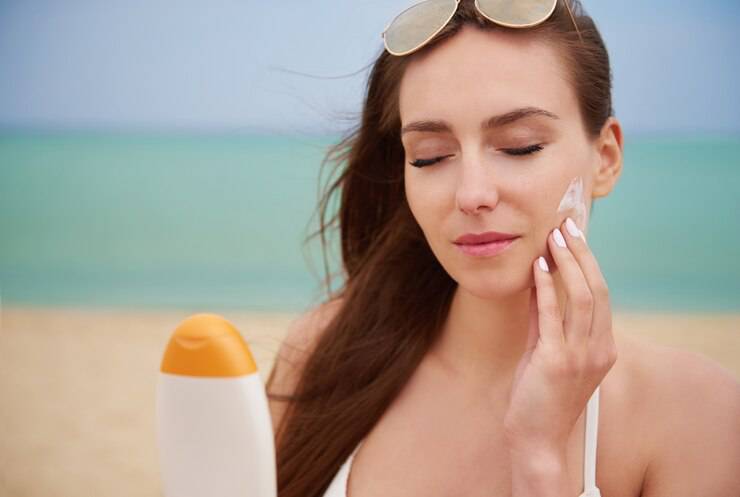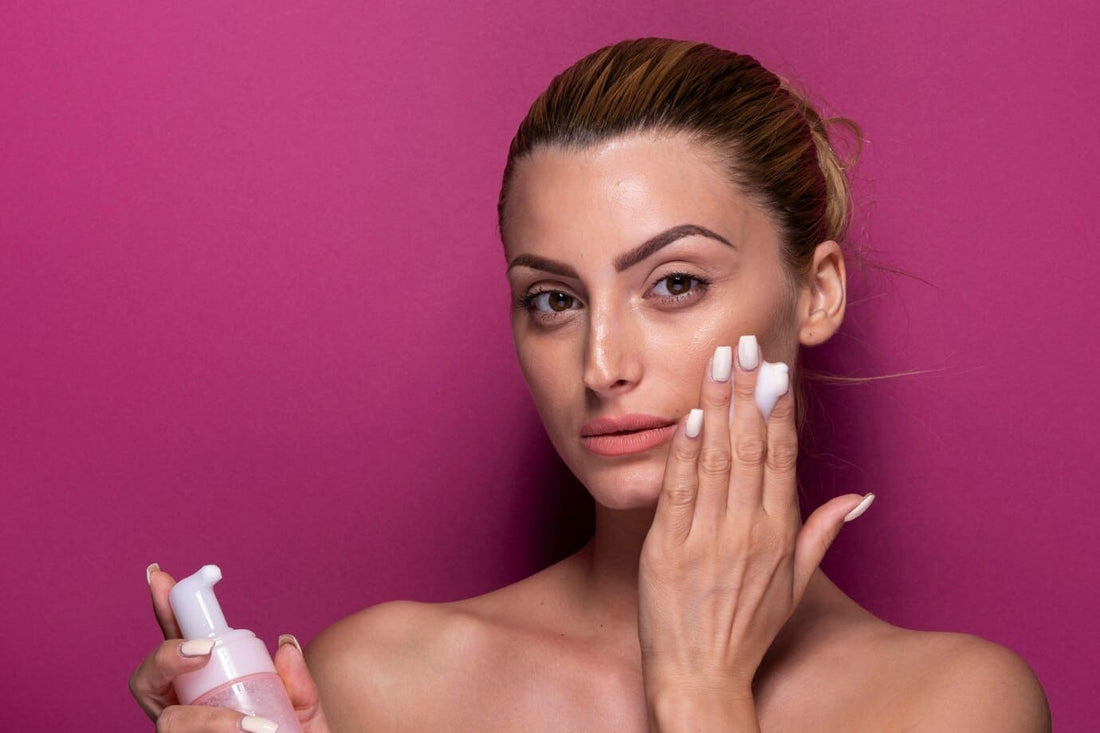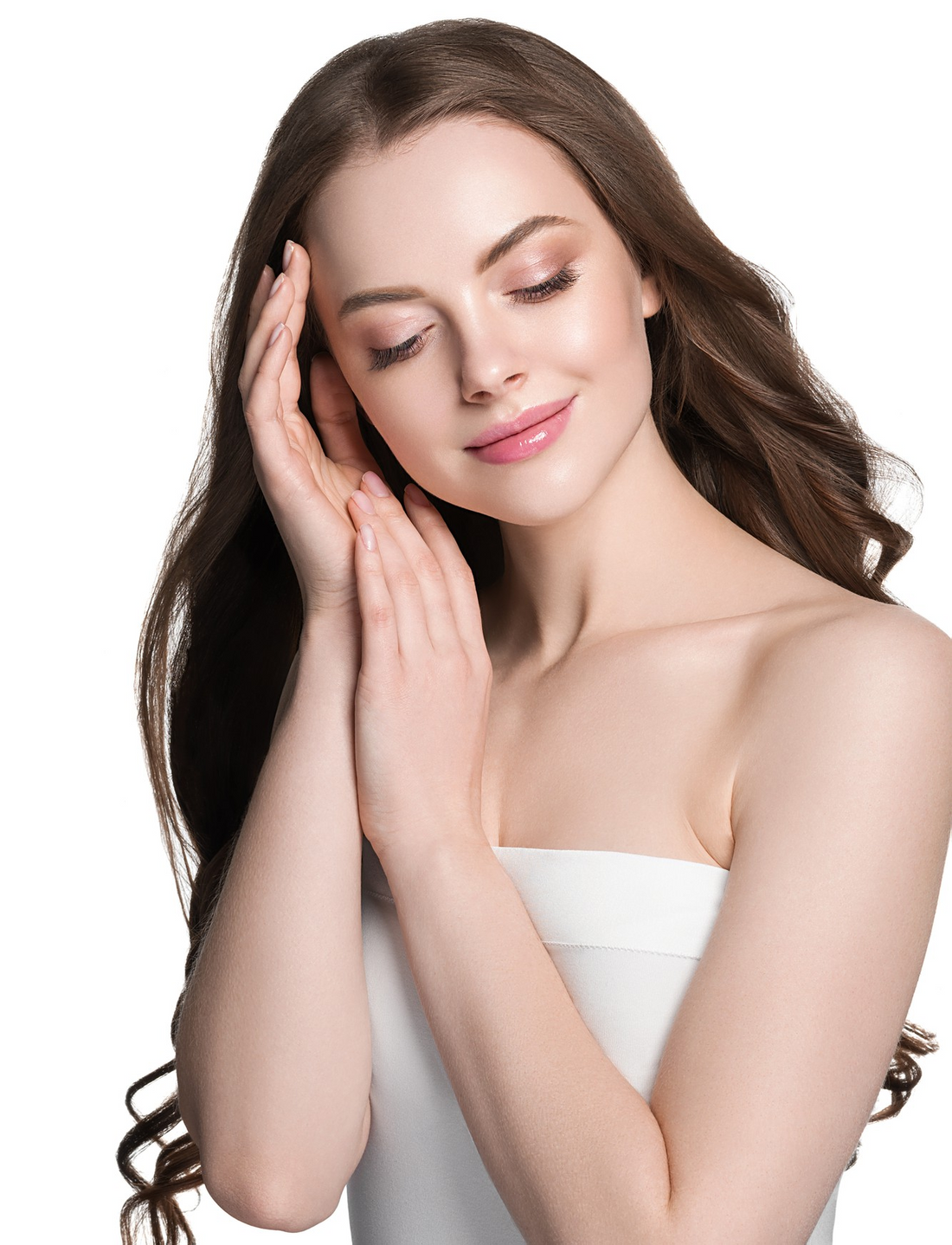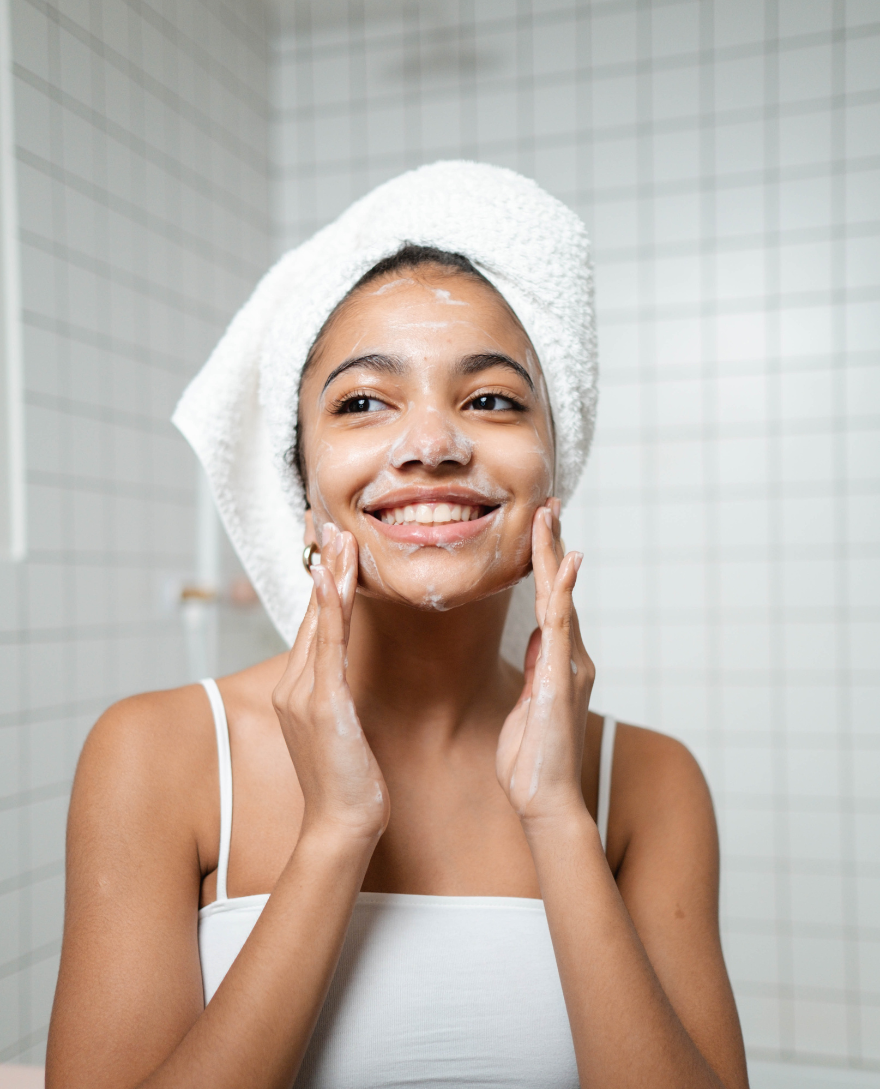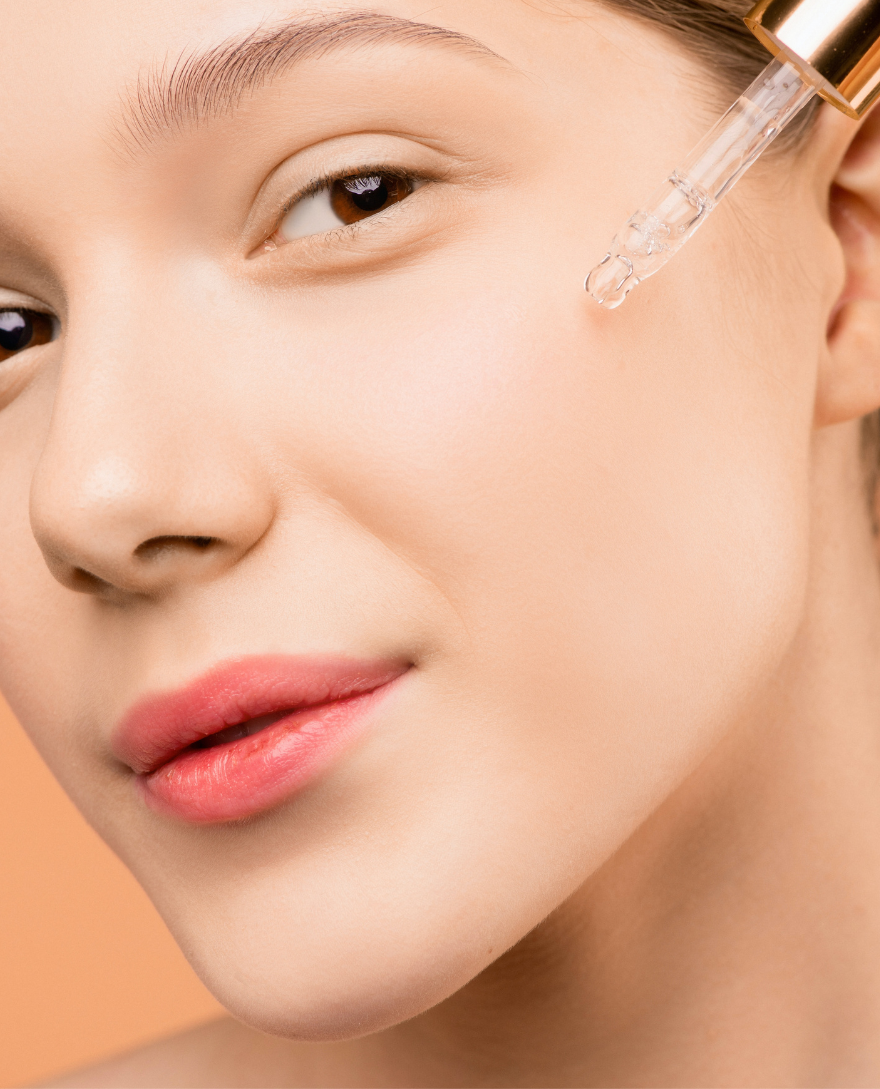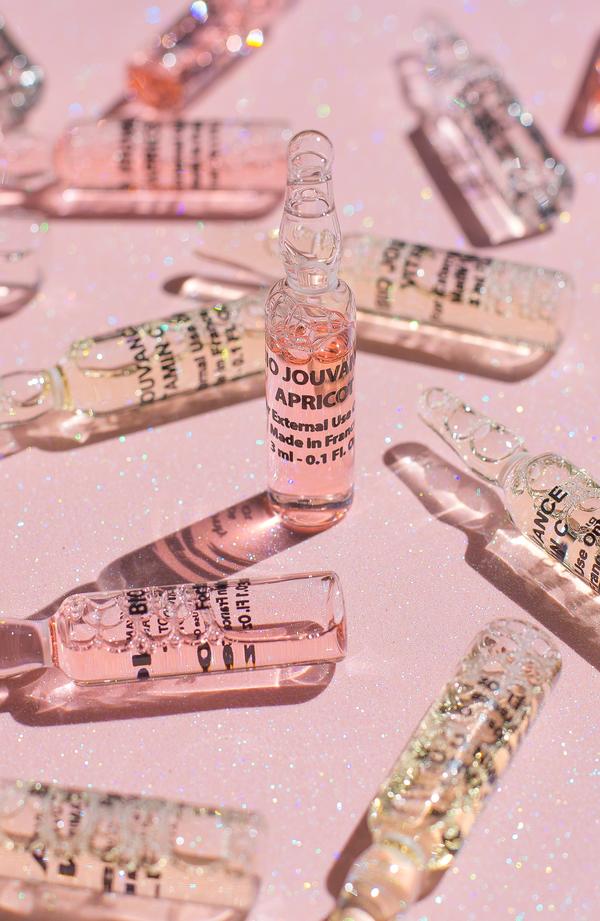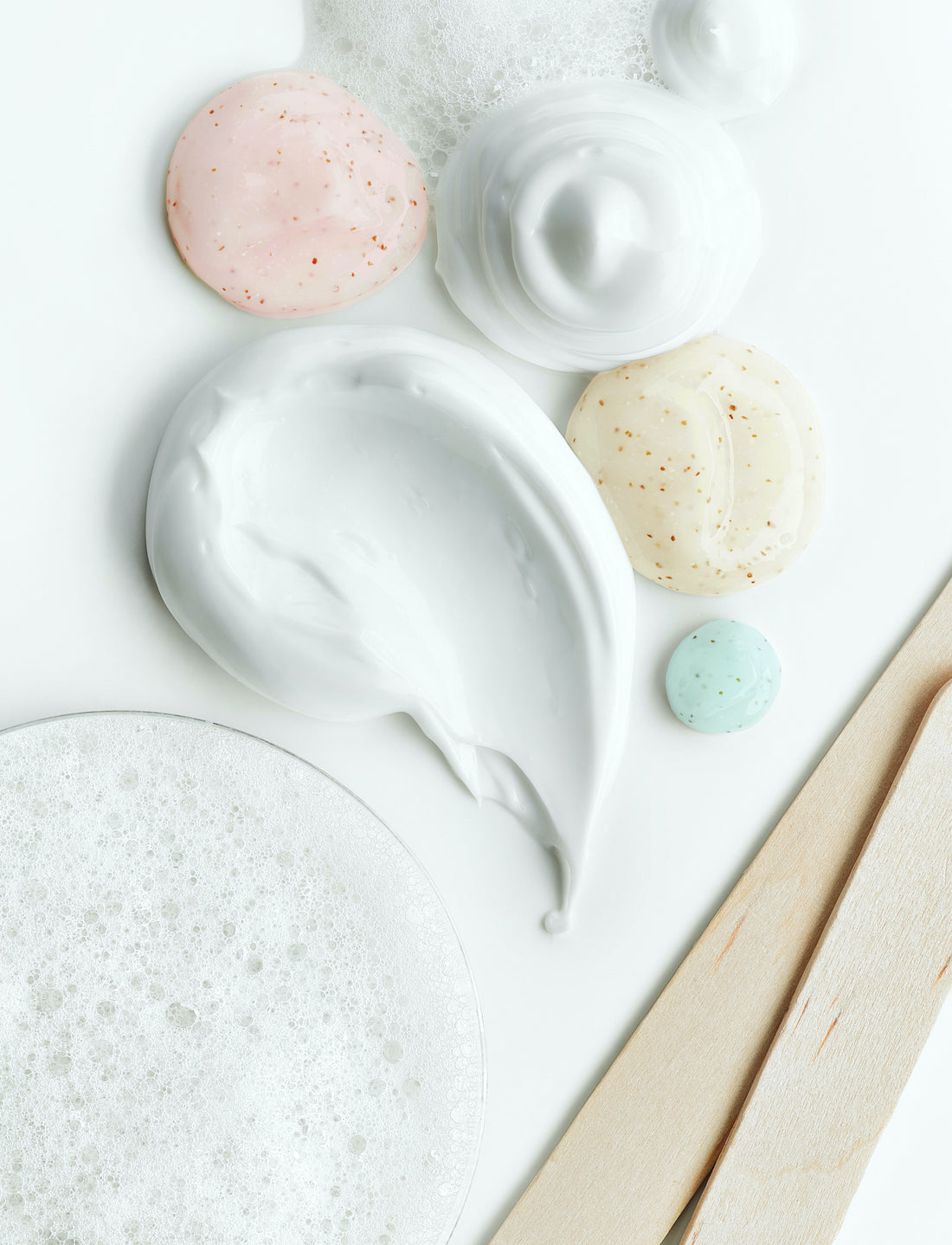The Beauty Review
Moisturizer For Face
Face Moisturizer: The Secret Weapon for Hydrated, Glowing Skin Face Moisturizer: Unlock the power of hydration for a radiant complexion.Face Moisturizer: Essential daily care for soft, supple, and healthy skin.Face Moisturizer: Find your perfect match for a nourished and youthful glow. Do you dream of dewy, healthy-looking skin that radiates with vitality? The secret weapon lies not in a magic potion, but in a consistent skincare routine featuring a high-quality face moisturizer. Moisturizer is the cornerstone of any effective regimen, working its magic to hydrate, nourish, and protect your skin, leaving it feeling soft, supple, and glowing. But with shelves overflowing with options, how do you find the perfect face moisturizer for your unique needs? This guide delves into the world of face moisturizers, exploring their benefits, different types, and how to choose the right formula to keep your skin looking and feeling its best. Healthy skin relies on a delicate balance of oil and water. While natural oils help maintain a protective barrier, environmental factors and even internal processes can lead to dehydration. This manifests as dryness, flakiness, and a dull appearance. Face moisturizers work by replenishing lost moisture and creating a protective barrier to prevent further water loss. They can also be formulated with additional nourishing ingredients like vitamins, antioxidants, and soothing botanicals to address various skin concerns and promote overall skin health. Here's a breakdown of some common types of face moisturizers: Lotions: Lightweight and ideal for normal to oily skin types, lotions absorb quickly and provide a light layer of hydration. Creams: Richer and thicker, creams are perfect for dry or mature skin. They offer deeper hydration and a more occlusive effect, locking in moisture for longer. Gel-Based Moisturizers: Lightweight and oil-free, these formulas are a great choice for oily or acne-prone skin. They provide hydration without clogging pores. Day Creams: Daytime moisturizers often contain SPF protection to shield your skin from the damaging effects of UV rays. Night Creams: Night creams tend to be richer and more intensive, focusing on deeper hydration and repair while your skin rests. Choosing the Perfect Face Moisturizer: Skin Type: Consider your skin type. Lotions for normal/oily, creams for dry/mature, and gel-based formulas for oily/acne-prone skin. Skin Concerns: Address specific issues. Look for ingredients like hyaluronic acid for intense hydration, retinol for anti-aging benefits, or calming botanicals for sensitive skin. Texture Preference: Choose a formula that suits your preference – lightweight lotion, richer cream, or oil-free gel. Frequently Asked Questions about Face Moisturizers: Do I need a moisturizer if I have oily skin? Absolutely! Oily skin can still be dehydrated. Opt for lightweight, oil-free formulas to control shine while providing essential hydration. Can face moisturizers clog pores? Some heavy creams might clog pores for those with acne-prone skin. Look for non-comedogenic formulas that won't block pores. How often should I use a face moisturizer? Moisturizing should be a twice-daily practice (morning and night) to maintain optimal hydration levels. Unveiling the Radiance Within Now that you've unlocked the secrets of face moisturizers, it's time to find the perfect formula to unveil the radiance within your skin! Bio Jouvance Paris offers a range of natural, cruelty-free face moisturizers formulated with high-quality ingredients to address your specific skin type and concerns. Whether you need a lightweight lotion to keep oily skin balanced or a rich cream to deeply hydrate dry skin, Bio Jouvance Paris has the perfect solution to keep your skin feeling soft, supple, and glowing all day long. Contact Us Now at info@biojouvance.com or call us at 1-800-272-1716 to discover our collection of face moisturizers and create a personalized skincare routine that nourishes and protects your skin's natural beauty. Let Bio Jouvance Paris help you achieve your skincare goals!
Learn moreDear Bio Jouvance Paris friends
As we step into the new year, we’re excited to introduce our latest arrivals in skin care linens that redefine comfort and style. Our Bio Placenta collection combines quality craftsmanship with innovative ingredients to elevate premie skin care experience . Explore the freshness of our new selection, carefully curated to meet the evolving needs of your skin. From luxurious textures to skin-friendly materials, each piece is crafted to enhance the well-being of your skin and those who indulge in the simple pleasure of self-care specially during cold winter months. To sweeten the deal, we’re offering 20% discount. for the orders placed before 12/15/24 . To order use PROMO24 We look forward to helping you make the new year a delightful and prosperous one. Wishing you a successful and fulfilling year ahead! Aesthetically Sonia Boghosian Your skin specialist
Learn moreThe Best Skincare Routine for Rosacea
If you’re struggling with stubborn rosacea, you’re not alone. Rosacea is one of the trickiest skin conditions to deal with because, unfortunately, there is no cure. People with rosacea have to focus on managing their symptoms, rather than curing an underlying issue. Managing rosacea also comes with its own challenges. To successfully manage this inflammatory skin condition, you have to take a two-pronged approach: you need to soothe your inflamed skin and avoid the things that are triggering your rosacea in the first place. There’s a lot to think about when you’re trying to build a skincare routine for rosacea-prone skin, but we’re here to make creating your perfect routine easier. Let’s go over the most frequently asked questions about rosacea. Q: What’s the best skincare routine for rosacea? When it comes to skincare for rosacea, less is more. You want your routine to be gentle and simple so you can soothe it and avoid irritating it as much as possible. People with rosacea usually see the best results when they stick to a three-step skincare routine consisting of: A gentle cleanser A serum for hydration or facial redness A moisturizing sunscreen in the morning and a soothing moisturizer in the evening Yes, this is all you need. If you’re having a particularly bad flare-up, you can also add in a soothing booster product, like a mask for hydration or redness. But, in general, you want to keep your skincare routine as simple as possible to avoid accidentally irritating your skin. Q: Why do so many skincare products make my rosacea flare up? When you have rosacea, you can’t necessarily use the same skincare products as other people. Sensitive, rosacea-prone skin can get intensely irritated by common skincare ingredients that are simply too harsh for people with rosacea. Rosacea can also pop up when you exfoliate your skin or sustain sun damage. Keep in mind that the threshold for what makes something a “harsh ingredient” is lower when you have rosacea. For example, chemical exfoliants like glycolic acid and lactic acid can make the skin look radiant if you don’t have rosacea, but trigger terrible skin sensitivity and redness if you do have rosacea. Drying ingredients (such as alcohol, witch hazel, menthol, peppermint, tea tree oil, and camphor) can also be extremely triggering for rosacea-prone skin. The threshold for physical exfoliation is also much lower for people with rosacea. Even things like washing the face with a washcloth, using makeup brushes with stiff bristles, or using a face wash with exfoliating “beads” can trigger a rosacea flare. Q: Why is my rosacea worse in the winter or after I eat spicy foods? Topical skincare products aren’t the only thing that can cause a rosacea flare. Foods and your environment can also cause your rosacea to act up. Some common rosacea triggers include spicy foods, hot beverages, cold and dry weather, and excess heat. If you think a food or your environment is triggering a rosacea flare, do your best to avoid the trigger. If you can’t avoid it, use extra soothing and moisturizing products in your skincare routine. For example, if your skin is very irritated by cold and dry winter weather, switch to a heavier moisturizer during the winter. Q: What skincare ingredients should I look for if I have rosacea? Look for skincare ingredients that ease inflammation, fight free radical damage, strengthen your skin barrier, and deeply hydrate your skin. Some of our favorite ingredients for rosacea include: Anti-inflammatory ingredients Azulene Azelaic acid Aloe vera Antioxidants Vitamin C Alpha Arbutin Green tea extract Barrier-strengthening ingredients Ceramides Peptides Niacinamide Hydrating ingredients Hyaluronic acid Glycerin Squalene STEP-BY-STEP ROSACEA SKINCARE Now that we’ve answered your top rosacea FAQs, let’s talk specifics. Here’s an example of a three-step rosacea skincare routine that’s simple and soothing. You can follow this exact routine or use it as a starting point to build your own custom routine. Step 1: Gentle Cleanser Bio Jouvance Paris Hydrating Cleansing Milk For a hydrating and soothing cleanser, try the Hydrating Cleansing Milk. With calming ingredients like aloe vera, chamomile, and green tea extract, this cleanser is perfect for people with rosacea-prone skin. Step 2: Soothing Serum Bio Jouvance Paris Marine DNA Serum After cleansing your skin, apply a soothing serum like the Marine DNA Serum. This serum deeply hydrates and nourishes the skin with hyaluronic acid, vitamins, and COQ10. Its Marine DNA Extract also helps firm the skin and slow down premature signs of aging. Step 3: Sun Protection (Morning) or Barrier Healing (Night) Bio Jouvance Paris 4-in-1 Sunscreen SPF 50 In the morning, finish your skincare regimen with a moisturizing sunscreen. People with rosacea should use sunscreen daily to protect their skin from sun damage and irritation. Make sure to use a broad-spectrum sunscreen of at least SPF 30, like our hydrating 4-In-1 Sunscreen SPF 50. Bio Jouvance Marine DNA Cream In the evening, you want to focus on deeply hydrating your skin and promoting a healthy skin barrier. With hyaluronic acid and skin-healing vitamins, the Marine DNA Cream is an excellent choice for rosacea-prone skin. As Needed Bio Jouvance Azulene Masque When you’re experiencing heightened skin sensitivity, redness, or dryness, pamper your skin with a soothing mask. We love the Azulene Masque for rosacea flare-ups. With calming chamomile extract and an array of moisturizing ingredients, this mask leaves dry skin feeling hydrated and refreshed. Explore More Rosacea Skincare
Learn moreThe Difference Between A Serum And Moisturizer
No matter your age, it is easy to be overwhelmed and confused by all the different types of products, creams, serums, and masks available and it gets even more complicated when you start thinking about active ingredients. The key to the perfect skincare routine is knowing your skin type and picking the appropriate skincare products with suitable formulations. There are so many different stages of a proper routine, regardless of whether you have particular skin issues or simply want to look after your general skin health and fight the common signs of aging. From antioxidants to Vitamin C to hyaluronic acid to sunscreen to lotion to toner to eye cream and more, there is so much to try to fit into a manageable list of products that can have a positive impact on your skin. It raises many questions. One major question is “what is the difference between a serum and a moisturizer?” We were happy when we looked for a moisturizer. It is a classic product and the name explains exactly what it does. Then beauty and skincare producers started to advertise their serums, telling us of their magical properties and that we should be using them. But is one preferable over the other? Are specific skin concerns relevant when making the choice? Does age matter? Taking guidance from leading dermatologists, let’s take a look at the differences between a moisturizer and a serum and provide some advice to help you decide which of the two product options might be best for you. What Is A Serum? A serum is a lightweight but very highly concentrated formula that is packed full of ingredients that can target specific skin conditions. A serum contains much smaller molecules than a moisturizer, which means that the formulas can penetrate the skin surface in a more precise and targeted manner. This results in healthy hydration and overall improved skin wellness. What Is A Moisturizer? Also known in the industry as emollients, moisturizers are designed to keep the outermost layers of the skin as hydrated as possible. Effectively, moisturizing products form a protective skin barrier that helps to prevent moisture from escaping your dermis, and can also help to shield against various environmental stressors. What Is The Difference Between The Two Products? The key difference between the two products is the fact that serums can penetrate much deeper into the skin, up to ten layers deep on average. This means that serums are preferable for targeting the appearance of specific damage like hyperpigmentation, sun damage, dark spots, and uneven skin tone. Moisturizing products contain much larger molecules, meaning that they only work on the outermost surface layer of the skin. Rather than for things like skin brightening or deep cleansing, moisturizers are better for addressing flaky, dry skin and overall surface dryness, as well as protecting the skin against water loss. You will generally find that you apply much smaller amounts of serum than a moisturizer. Do You Need To Use Both Types Of Products? Any dermatology expert will recommend that you use both a facial serum and a moisturizer as important but separate steps of your skincare routine. Both products fit into a longer list of products that need to be applied in a specific order for you to feel the benefits of every item that you use. Cleansing the dirt and debris from your skin cells comes first, followed by toning and then the two products that we have been focusing on in this article. On a side note, it is also important to remember that any good skincare routine should be finished off with an application of good sunscreen because whenever you are spending time outside, you are putting yourself and your skin at risk of damage from the sun’s UVA and UVB rays. Even when the weather looks to be overcast and grey, the very fact that it is daytime means that the sun and its harmful rays are a factor. Sun damage is the most common factor of skin showing age. Recommended sunscreen - Bio Jouvance 4 IN 1 Sunscreen SPF 50 In terms of the running order, your daily skincare routine should look something like this: Cleanser Toner Serum Moisturizer SPF Sunscreen Because a moisturizer only affects the surface of the skin, it needs to be applied after a serum. Serums and moisturizers may contain similar active ingredients but because serums penetrate deeper into the skin’s layers, they are more powerful and effective. If you are going to use a serum, it should be applied before a moisturizer because the moisturizer will “lock in” the serum’s goodness to enable the active ingredients to penetrate and target the places where they are needed. Together, Separately, Both or Either? This issue comes down to what you want to achieve. If you have youthful, elastic skin that is still firm, you may only need a moisturizer to maintain a dewy complexion. This doesn’t mean that only mature skin benefits from serums. Serums can help young skin look brighter and more even-toned. If you have dry skin, and uneven skin tone, your skin is losing elasticity due to reduced collagen and elastin (something that occurs naturally with age) or another issue, a serum is more powerful. It should be followed by a moisturizer. So, you can use a moisturizer by itself but you shouldn’t use a serum by itself. How To Choose A Good Serum When it comes to choosing the face serum that works best for you, you need to think about what specific skin issues you want to address. For example, if you have dull skin that isn’t always improved by exfoliating, then something like a Vitamin C serum is a good choice. Recommended Vitamin C serum - Bio Jouvance Multi-Vitamin C Serum On the other hand, if your skin is prone to extreme and uncomfortable dryness, then a serum containing hyaluronic acid is the best option. Recommended hyaluronic acid serum - Bio Jouvance Hyaluronic Acid Serum If you want to tackle the signs of aging, you should look for a serum that has a plumping effect to reduce fine lines and wrinkles. Recommended anti-aging serum - Bio Jouvance Bio Matrix Wrinkle Filler Serum Some serums are specifically for the eye area. If you want to address issues such as crow’s feet, under-eye circles, bags, or puffiness, you can opt for an eye serum and apply it before your full face moisturizer. Recommended eye serum - Bio Jouvance Firming Eye Gel How To Choose A Good Moisturizer Although their primary benefit is always going to be helpful for dry skin, there are plenty of different types of moisturizers that can help your skin in different ways. Dry skin needs a richer type of cream that will help even further to prevent water loss. Recommended moisturizer for dry skin - Bio Jouvance Hydrating Day Cream More oily skin needs a cream that will still hydrate, but also will be able to balance the levels of sebum that you naturally produce. Recommended moisturizer for oily skin - Bio Jouvance Clarifying Day Cream More mature skin might benefit from a rich formula that can target fine lines and other classic signs of aging. Recommended moisturizer for mature skin - Bio Jouvance Colastin Age-Defying Cream The Bottom Line So, the bottom line is that while serums and moisturizers are similar products, they have different aims and effects. It isn’t a case of choosing one over the other. If you are young with no skin issues, a moisturizer is all you need. If you have skin issues, you need a serum targeting the issue as well as a daily moisturizer. More mature skin, even in excellent health, is best maintained by a serum and moisturizer. The one key thing to remember is that serums have the active ingredients to help with more complex skin issues and therefore need to be applied first, and then moisturizer can be applied to create that all-important protective barrier on the outermost layer of the skin.
Learn moreAmpoules: what are they, how they are made, why you need them...⠀
Imagine you find the right serum and you love the results. Now imagine multiplying that abilities tenfold. That’s what ampoules are.
Learn moreDoes Your Skin Type Matter?
It's an age old story: dry skin, oily skin, combination skin, which category do you fall in?
Learn moreColastin Winter Routine Treatment
Don't let the winter seasons get you down. Long time Bio Jouvance user shows us her winter morning routine to keep her skin glowing, refreshed and ready to go.
Learn moreWhat is Plant Placenta?
Oxygenating and cellular renewal properties, proteins, peptides, antioxidants, you want it? Plant Placenta has it.
Learn moreBenefits of Vitamin C
Vitamin C Serum, Vitamin C Cream, Vitamin C Everything. But what's so special about it? We're here today to tell you: a lot.
Learn more